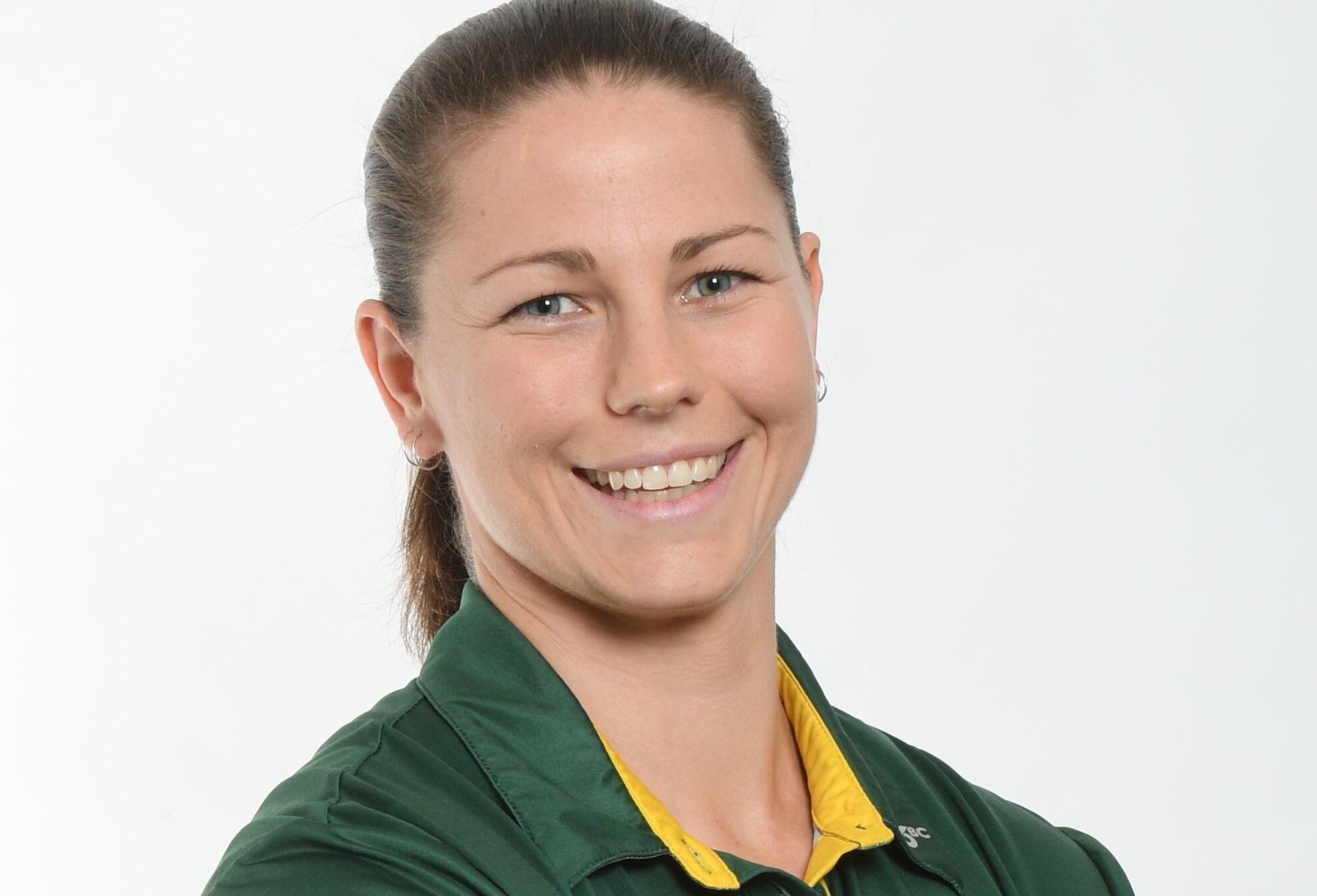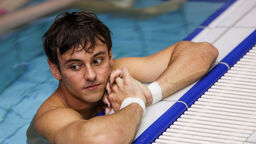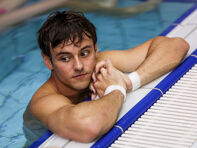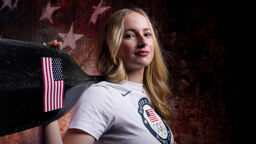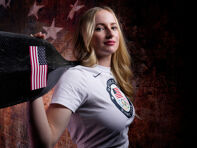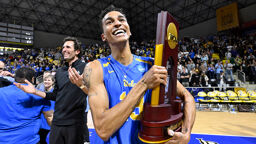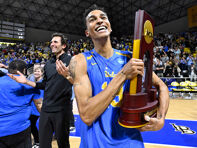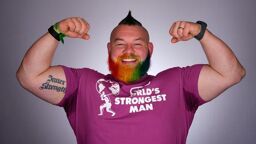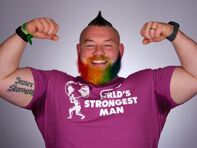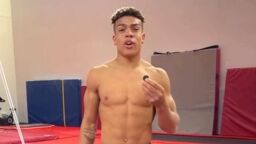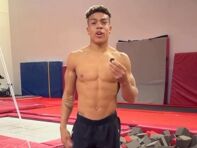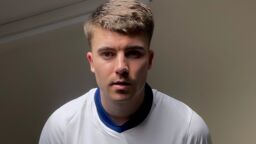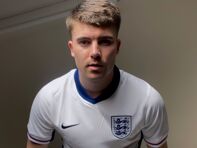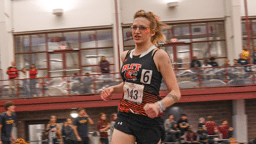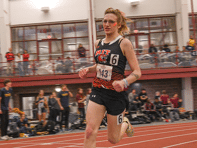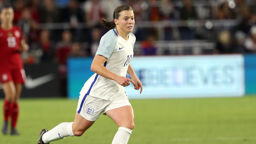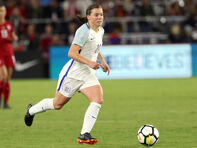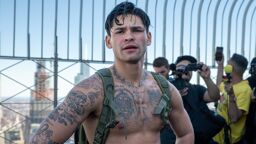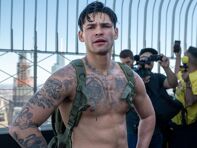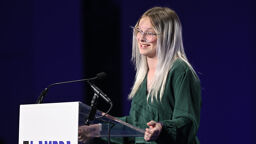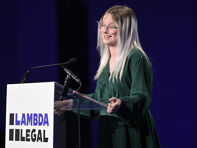Nikki Ayers will be headed back to the Paralympics, this time in Paris and this time totally out and proud in every aspect of her life.
Having been announced as an ambassador for Pride House Paris 2024 — the biggest project of its kind so far for an Olympic and Paralympic Games — Ayers is also moving up a level in LGBTQ athlete activism.
However, the Australian para-rower, who became a world champion for the first time last year, admits she is not a natural campaigner.
She competed in Tokyo three years ago but wasn’t on Outsports’ list of 36 publicly out athletes at those Paralympics.
Get off the sidelines and into the game
Our weekly playbook is packed with everything from locker room chatter to pressing LGBTQ sports issues.
“I identified as being gay within the sporting community, and the people who were close around me knew I was,” she says.
“But I wasn’t very open about it. As a sport, rowing is quite conservative, and it’s still learning how to be more inclusive.”
However, when she read after the Games that the Australian Institute of Sport (AIS) was creating a program called “Thrive With Pride,” inviting elite athletes who are LGBTQ to assist with inclusion initiatives through sharing their experiences, she was intrigued.
“I spoke about it to my older sister, who has a wife and two kids, and they told me to go for it. So I joined, not really knowing what I was going to get out of it or what to expect. I was a bit nervous.
“But it really helped me find what I wanted to do, which is try to be a positive role model for people of the rainbow community and for allies as well.”
Ayers was one of 14 initial ambassadors — Olympic gold medalists Matthew Mitcham and Sharni Williams were among those also appointed — and her motivation to help make change grew as she made more connections through the AIS program.
She stayed on board for the second year of “Thrive With Pride” too, with Paralympics Australia then putting her forward for the Pride House role at Paris 2024, which was announced earlier this month.
“It was a no-brainer to say yes. I’m in a place now where I’m confident and happy with who I am and if I can be somebody that one person looks up to, who can help change their life, that would be amazing.”
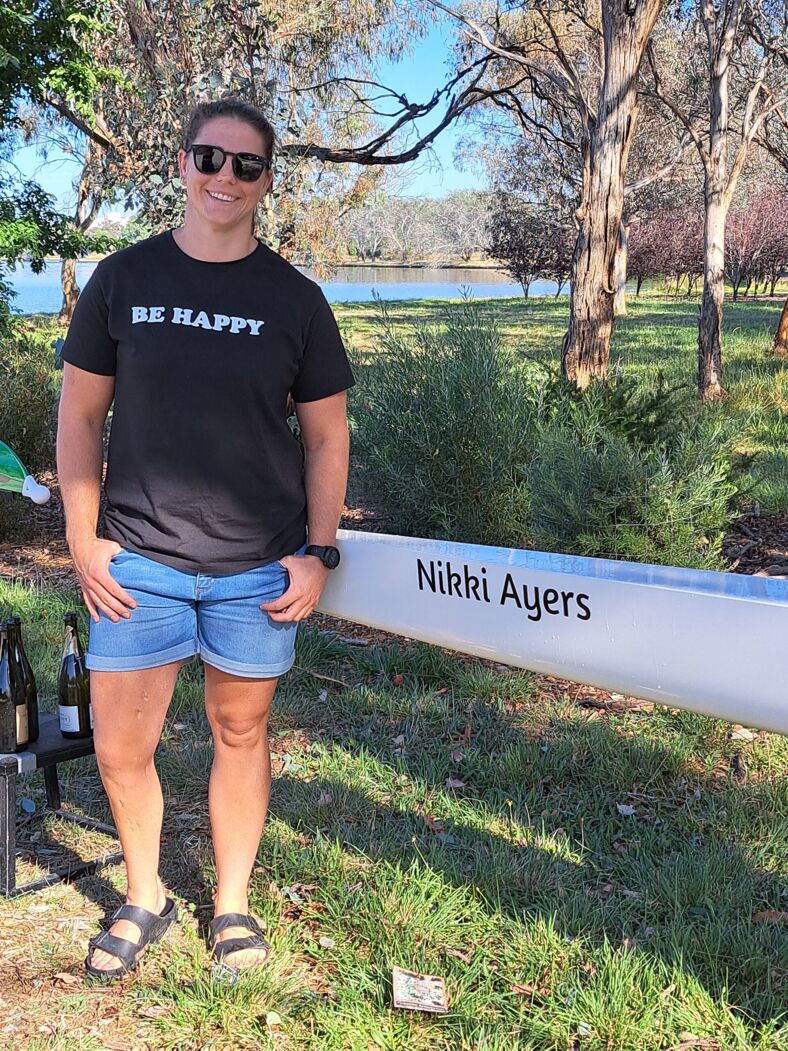
Equality doesn’t come easy
Ayers’ own life changed in 2016 when she suffered a freak injury while playing rugby union, her original sporting passion.
Then aged 25, she not only dislocated her knee in a routine tackle that went horribly wrong but also suffered a severed major artery and a major nerve, meaning she lost feeling in her foot.
In the first three weeks of her stay in hospital, she had 10 operations in an attempt to hold her knee in place with a metal brace and pins. Issues caused by compartment syndrome were also a factor, and there were six further surgeries, all in the space of nine months.
Early on in her recovery, she met para rower Jed Altschwager who had had most of his left leg amputated after getting injured while operating an excavator.
He helped Ayers accept her change in circumstances and after she impressed in an AIS “Train4Tokyo” rowing session, she began training seriously in her new sport by early 2018.
Meanwhile, she was still finding comfort within her LGBTQ identity too. Ayers is from Dalmeny, a coastal town in New South Wales with a population of less than 2,000. Growing up, she witnessed homophobic bullying in her school and can’t recall seeing out gay people living locally at that time.
“Everyone knows everyone’s business in a small town and it was really hard. You can see why that’s so detrimental to people’s mental health,” she says. “But my sister and I fell into rugby union as teenagers and would often get to travel up to Canberra to play.
“It was the first time we really got to see gay couples around. And in rugby, there were lesbian couples just being who they are and playing a sport that they loved.
“It meant that when I was getting a bit older, I was around people where I felt safe to experiment. You’re accepted for who you are, and there’s no repercussions for it. That’s how I ended up essentially finding out that I identify as a lesbian.
“I never had that one out sports role model but thankfully it’s changed so much now.”
Ayers remained protected within her rugby sisterhood into her mid-20s. Then in 2017, Australia held an equal marriage referendum and suddenly LGBTQ rights and visibility became a huge national talking point.
“Hearing people’s opinions — hearing just how shallow they were, the lack of understanding, the lack of thought…
“We had this big, expensive postal vote and it shouldn’t have to be like that. It makes you feel less valued within society.”
Nearly 13 million eligible voters cast their ballots and ‘Yes’ carried the majority of just under 62%. The discourse around the referendum was often fractious, however, and close to 5 million Australians ended up voting ‘No’.
“It was painful, but it did start that ball rolling to where we are today,” adds Ayers. “Now we have organisations here like Pride in Sport and Proud 2 Play, which have helped so much with education and policies.”
She is still trying to implement those learnings within her own sport, and an incident at the World Rowing Cup in Varese last June shows the challenges that persist.
After it was announced that a mixed doubles sculls race would be added to the Paris 2024 regatta, Ayers teamed up with Altschwager to target it, even moving to Adelaide so they could train together. The Varese competition was their first major test at elite level.
They delivered a stunning performance, setting a new world-best time in their heat and then knocking off five more seconds as they stormed to victory in the final. But when they went up to collect their gold medals, an official took them to one side.
“Sometimes things happen behind the scenes that people don’t see,” she says.
“Jed and I had Pride socks on because the week before at the Gavirate International Regatta, the whole Australian para team had raced in them.”
Wearing the rainbow was a relatively small but meaningful recognition that they were in Pride Month. “When we got onto the podium, we got told to take our socks off.
“There was me as a member of the community and Jed as an ally, but people didn’t have that understanding and interpreted the socks as a “political statement.” I was like, this is an absolute joke.”
She admits there was “a lot of swearing” but this kind of row was also uncharted territory for her — it was the first international race she and Altschwager had won as a pair.
She credits him for calming the situation in the moment, but stresses: “It was so frustrating and I was angry and annoyed.”
They put the Pride socks back on for photos taken afterwards, away from the podium.
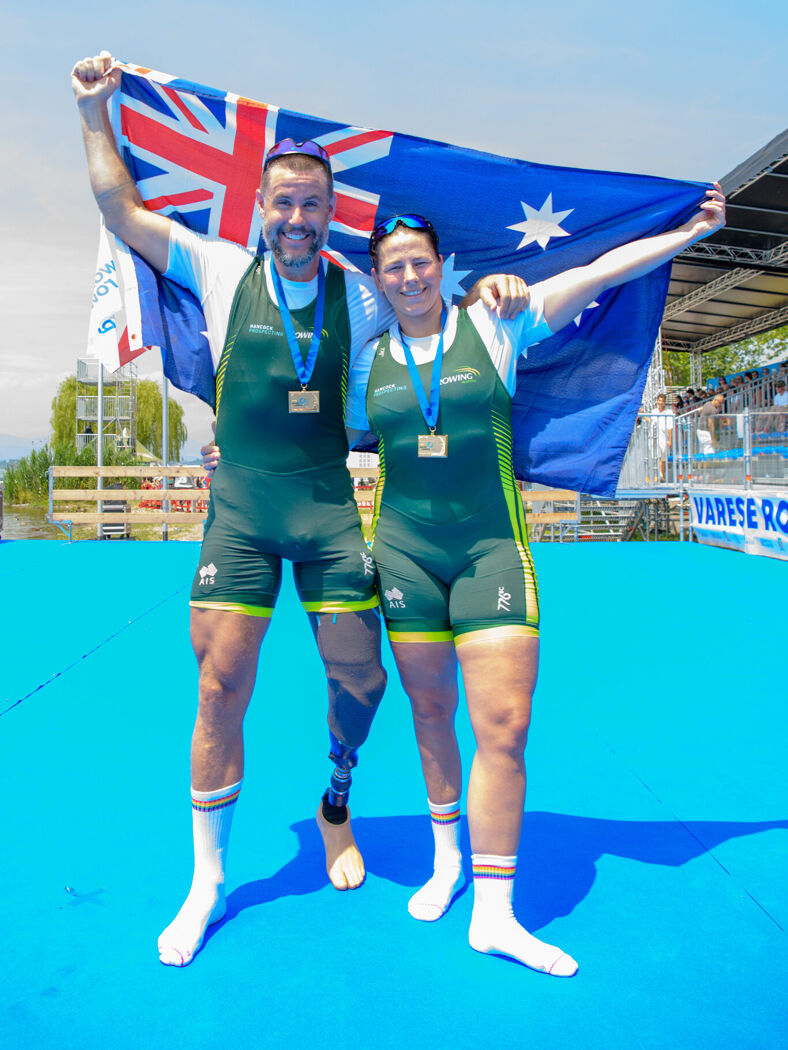
“From there, there was a big e-mail with my opinion and experience explaining why it’s not a political statement — but nothing has really changed since.
“I’m still trying to advocate. Our sport is very conservative and it is changing — Rowing Australia was so supportive of us. But there’s only so much I can control.”
‘We still need those stories’
The incident is a reminder of the tightrope that LGBTQ athletes often have to traverse when it comes to their visibility.
For this year’s Olympics and Paralympics, updated guidelines for participants have been issued, allowing for greater freedom of expression.
However, medal or victory ceremonies are among the moments during a Games that “the majority of athletes wanted to protect,” an IOC spokesperson told Outsports in January.
It still remains unclear whether displaying some form of Pride rainbow on a Paris 2024 podium could be seen as a gesture that might warrant investigation. “If any athlete has a specific request that is not covered by the guidelines, the IOC will evaluate it on a case-by-case basis,” Outsports was informed.
Related
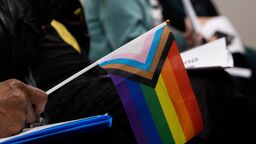
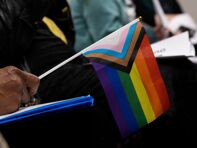
Will updated guidelines allow LGBTQ athletes to raise Pride flags at Paris 2024 Olympics?
The International Olympic Committee tells Outsports that specific requests on athlete expression will continue to be considered on ‘a case-by-case basis.’
By Jon Holmes | January 29, 2024
Ayers was aware of a podium demonstration by US para-rower Charley Nordin at the Tokyo Paralympics, when he revealed a T-shirt that read “Justice for Oscar Grant,” referring to the African-American man fatally shot by a police officer in Oakland in 2009. Nordin was ultimately given a public warning and ordered to apologize to his teammates.
“It’s hard because you’ve got to work within the constraints of the sport and you want to focus on the rowing,” says Ayers. “You don’t want to be there thinking, am I going to get trouble for this?
“Hopefully being a part of Pride House — being able to come there and have conversations, get on the socials, do that promotion — is something.”
She concedes she’s not a big fan of social media but with LGBTQ rights heading backwards in many parts of the world, she feels the chance to send out a positive message through the Pride House project can’t be passed up.
In Belgrade last September, she became a world champion alongside Altschwager for the first time. That celebrated status adds some extra weight to her words and during what is also Lesbian Visibility Week, Ayers is conscious that she can make an impact for women and girls who are LGBTQ, and for para-athletes.
“How do we get that visibility across, so that other people can see who we are, what we’re doing and how we’re succeeding in life?
“Essentially, we’re no different to the person next to us who doesn’t identify as a lesbian, but we need those stories and headlines now to create conversations.
“It’s those little steps that help the young girl in the playground who doesn’t think she’s like the other girls, or someone who’s later in life who has always felt something that might be different.
“If I didn’t play rugby, I don’t know what my journey would have been because that community was amazing. I am who I am today because of that.
“Having that visibility now with social media means it can just be one person who posts one thing, and it goes viral — and that could change many people’s lives.”
You can follow Nikki Ayers on Instagram. For more information on Pride House Paris 2024, visit their website.
